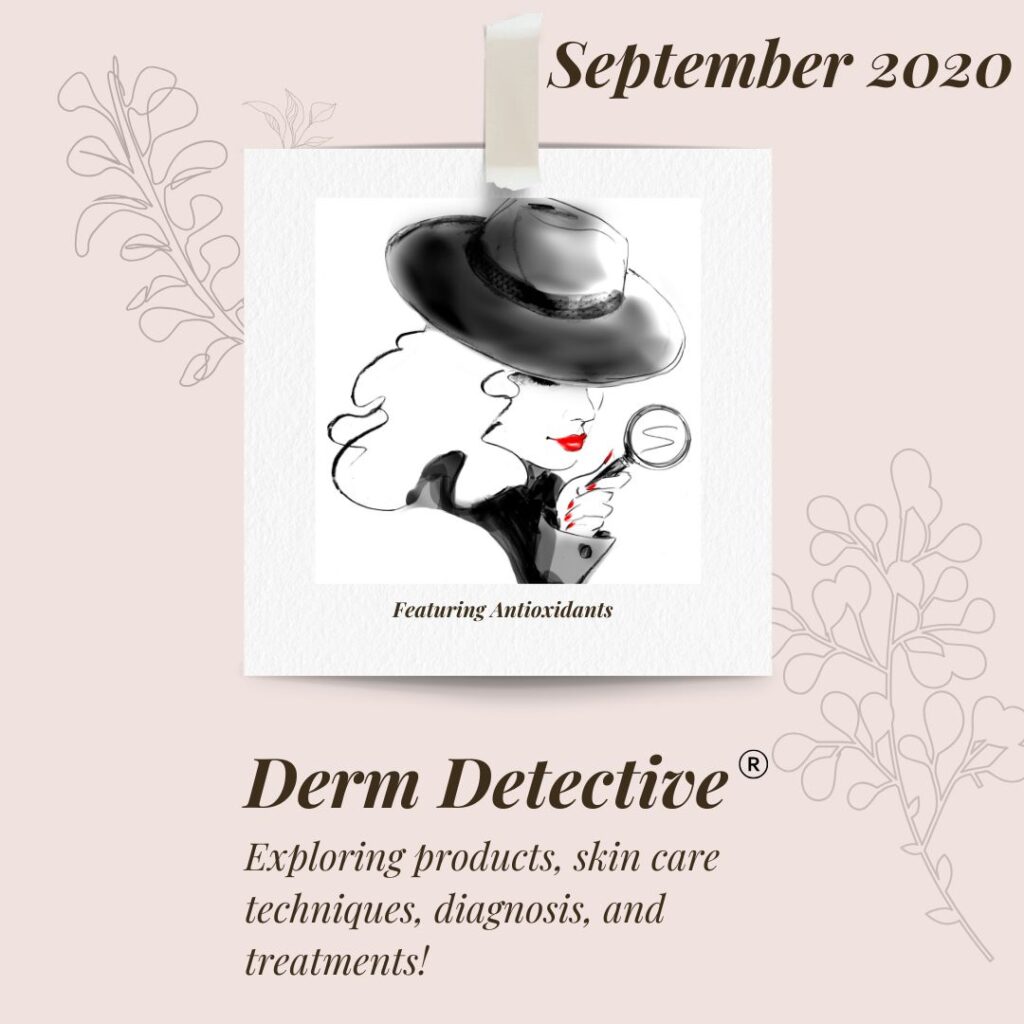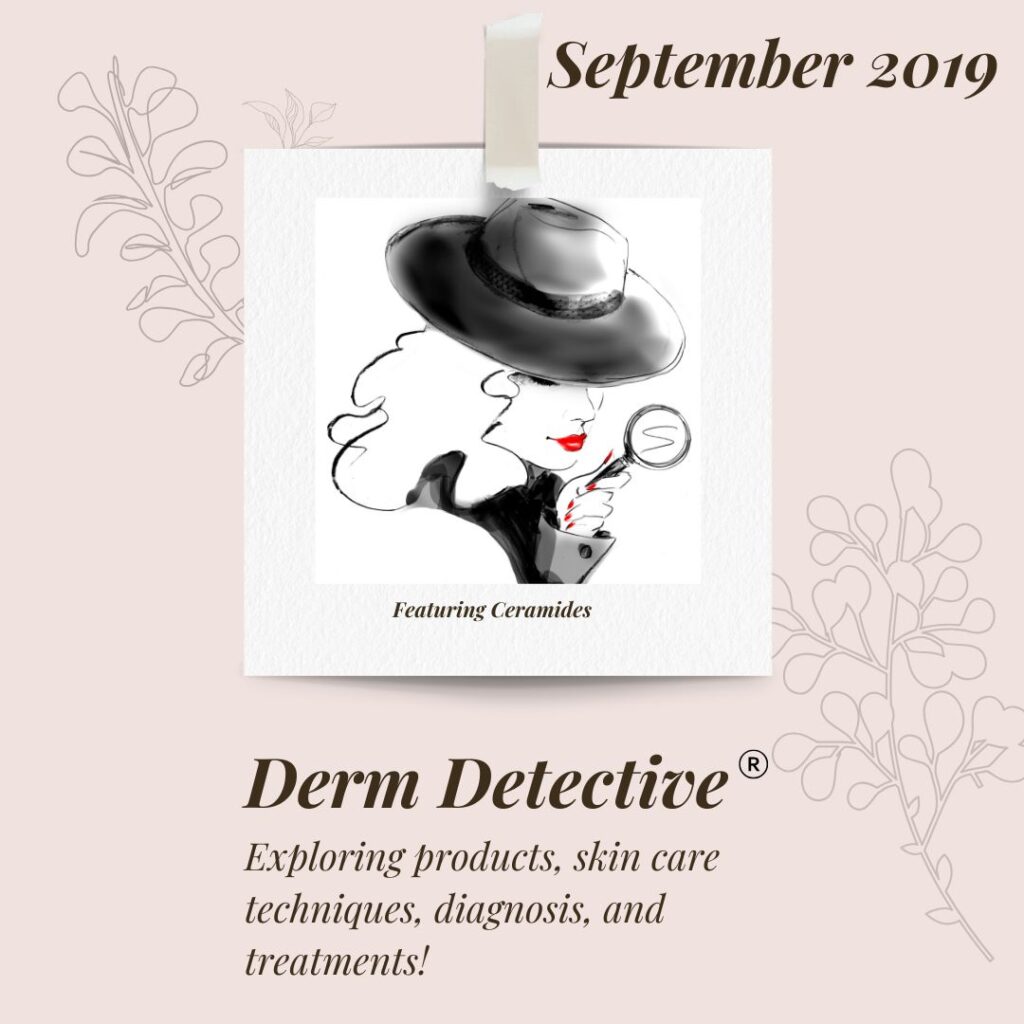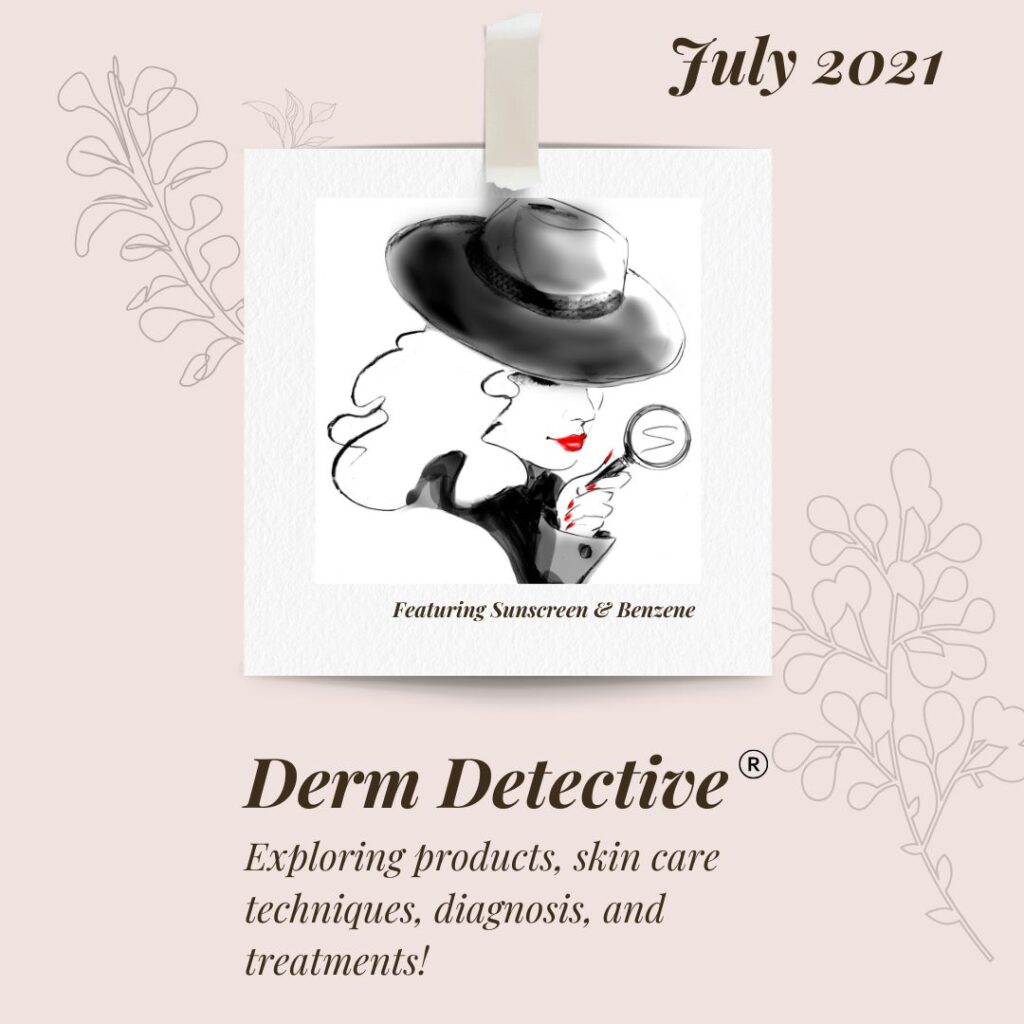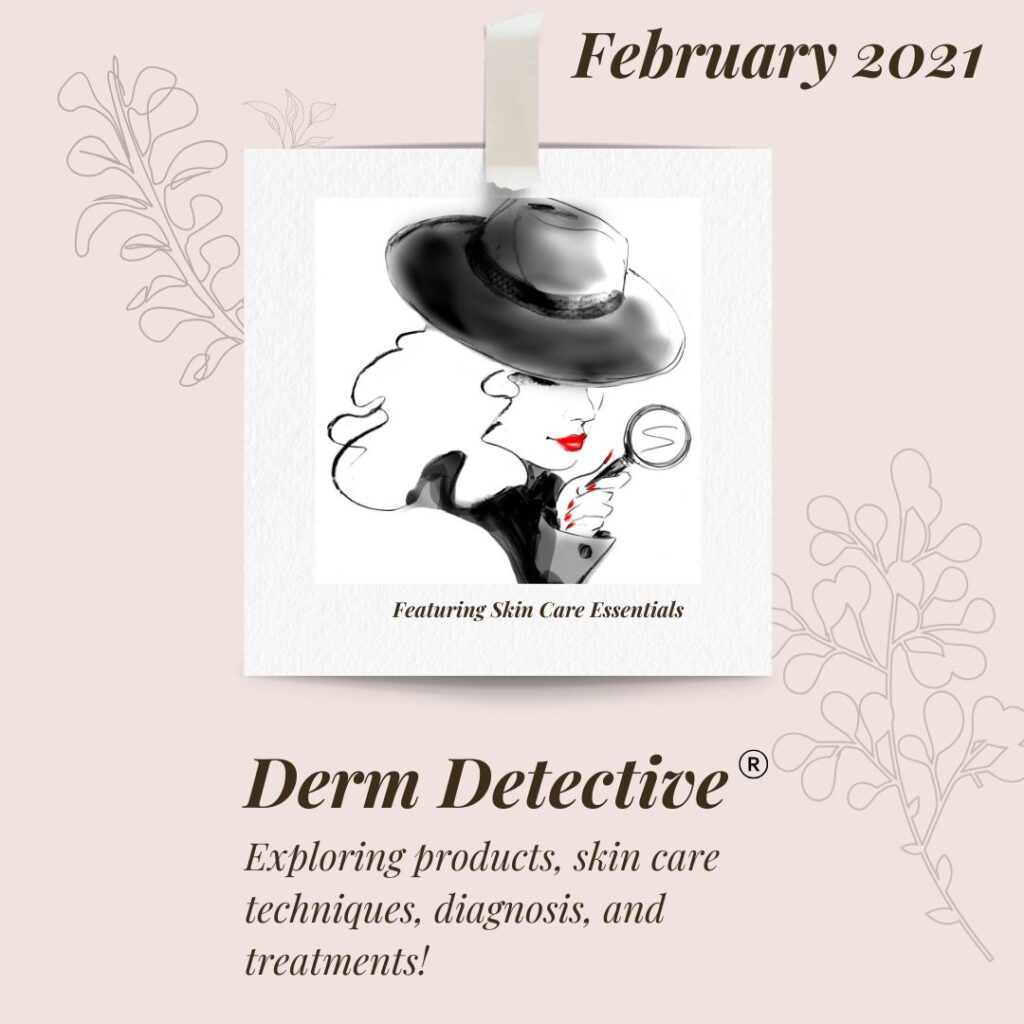I am happy to share my serum secrets with you this month!
Using a serum is an essential step for any skin care routine because the vehicle (aka liquid) of delivery provides optimal penetration into the skin. Typically, serums are applied with a dropper and absorbed quickly. The benefit of using a serum is that it gives your skin ingredients that can make a noticeable difference in what you are targeting. I genuinely believe serums are the secret weapon for optimal skin care.
Though there are many types of serums to choose from, you should be careful and select one based on your specific skin type. You don’t want to apply something that can irritate your skin due to the product’s penetration capability. Popular serum products are Vitamin C (Ascorbic Acid), Retinols, Hyaluronic Acids, Ferulic Acid, and Green Tea. Antioxidants are critical ingredients in serums to give the skin extra protection from oxidative stress from pollution, UV radiation from the Sun, blue light, and infrared radiation, all of which can lead to premature aging.
For best results, applying a serum within your morning and nighttime routine immediately after cleansing or toning is good. You may want to wait a few minutes after you pat your skin dry to apply, due to the nature of some serums having an increased concentration of ingredients. The skin is more absorbent when it is dam,p which can increase the penetration of a product. A person with sensitive or dry skin should be careful with ascorbic acid or retinol products; however, a hyaluronic acid serum would be perfect for someone with this skin type.
Key Serum Secret: You always want to follow your serum with a moisturizer and sunscreen in the morning and moisturizer at night. The rule of thumb for applying products is thinnest (serums) to thickest (creams); however, if you are using any prescription products, you may want to consult with your Board-Certified Dermatologist first.
Diva Tip: Serum Secret Hack: What is the best vitamin C for your skin type?
For oily/normal skin: L-ascorbic acid
Dry/sensitive skin: magnesium ascorbyl phosphate
Start at a low concentration of 10% and increase the concentration as tolerated. MUAH💋
Renata Block is the creator of Savvy Derm Diva and is a Dermatology Physician Assistant practicing in Chicago. Derm Detective is a monthly column exploring ingredients, procedures, and diagnosis of all things skin.
Follow her on IG, Twitter, and FB @savvydermdiva



